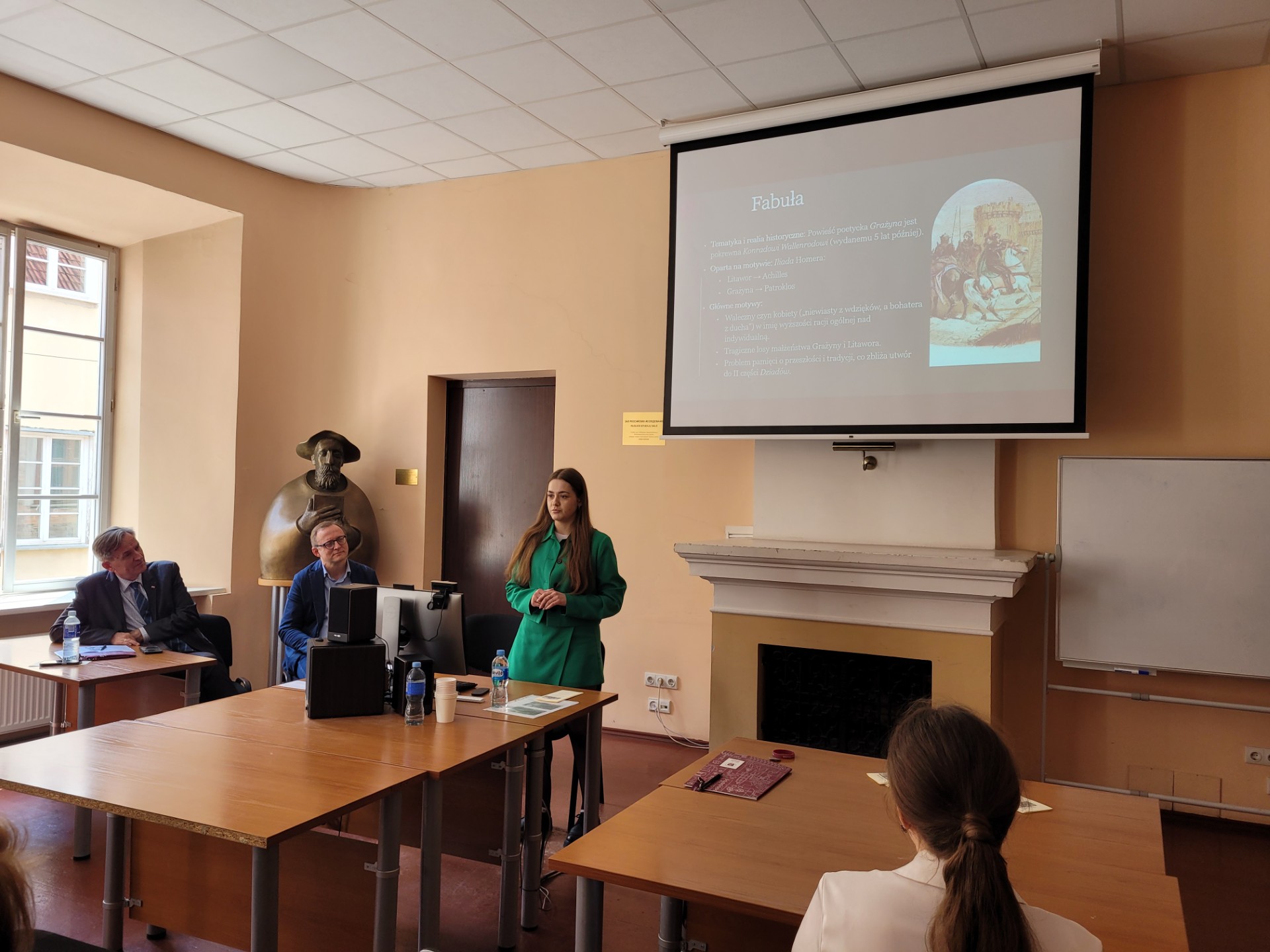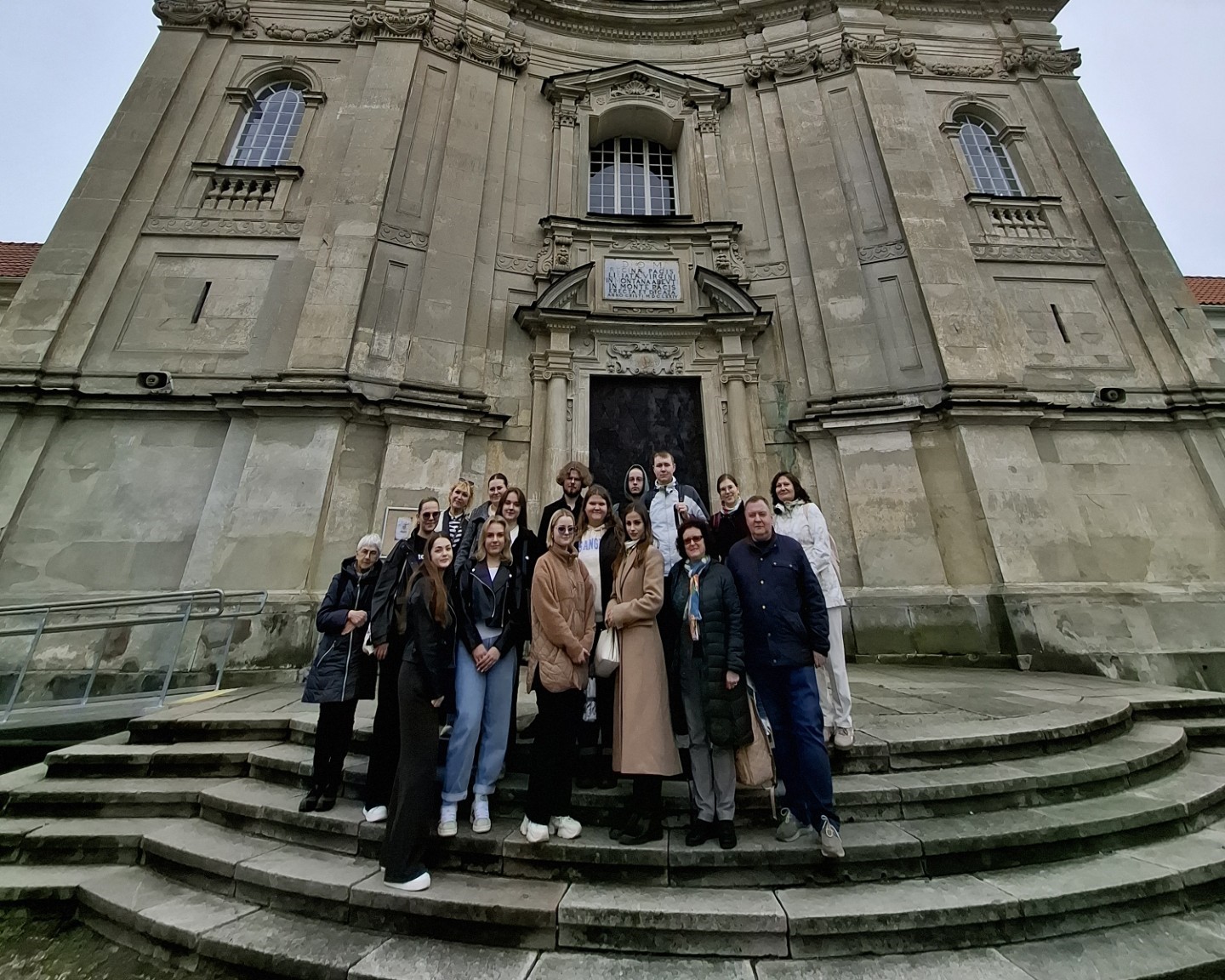
Gegužės 22-23 dienomis Vilniaus universiteto Filologijos fakultete jau 22 kartą vyko tradicinės Polonistikos dienos. Kasmet šių renginių cikle aktyviai dalyvauja studentai ir doktorantai tiek iš Lietuvos, tiek iš Lenkijos.
XXII Polonistikos dienų programa tradiciškai prasidėjo nuo tarptautinės studentų ir doktorantų konferencijos, kurios metu pranešimus skaitė Vilniaus universiteto polonistai (pirmo, antro ir trečio kurso), viena polonistė/ lituanistė iš Ukrainos (iš Kijevo Taraso Ševčenkos nacionalinio universiteto) bei trijų Lenkijos aukštųjų mokyklų – Varšuvos, Kelcų ir Torunės universitetų – studentai ir doktorantai. Konferencijos garbės svečiais buvo Lenkijos Respublikos generalinis konsulas Dariusz Wiśniewski ir VU Filologijos fakulteto mokslo ir strateginės plėtros prodekanas doc. dr. Giedrius Tamaševičius.
Polonistikos studentų konferencijos (kaip ir apskritai mūsų studijų) programa aprėpė plačią mūsų regiono problemiką – ne tik filologijos mokslo, bet taip pat kultūros, istorijos, medijų pažinimo, netgi dirbtinio intelekto ir kompiuterinių žaidimų panaudojimo aspektus. Iš viso buvo perskaityta 12 pranešimų, kurių temos pabrėžia, kokie įvairūs yra mūsų studentų moksliniai ir kūrybiniai interesai. Džiaugiamės, kad turime daug aktyvių studentų, kurie noriai sutinka dalyvauti konferencijose. Daugelis jų taip pat yra dalyvavę moksliniuose ar kultūriniuose tarptautiniuose projektuose, todėl pranešimai mūsų konferencijoje suteikė studentams galimybę pasidalyti ne tik savo tyrimų rezultatais, bet ir įspūdžiais apie darbą daugiakultūrėje aplinkoje.
Po konferencijos jos dalyvių laukė maloni staigmena – VU Teatro salėje įvyko muzikinio spektaklio pagal Juliuszo Słowackio dramą Balladyną premjera. Malonu, kad šios įdomios inscenizacijos režisierė – Božena Sosnovska – yra VU polonistikos absolventė. Taip pat džiugina, kad spektaklyje vaidino ir mūsų pirmo kurso studentė Ewa Zakrzewska, aktyvi Vilniaus lenkų teatro Studija dalyvė.
Gegužės 23 d. Polonistikos dienų dalyviai ir svečiai važiavo į edukacinę kelionę į Kauną: aplankė baroko architektūros perlą – Pažaislio vienuolyną, senamiestį, vietas susijusias su Adomu Mickevičiumi. Nacionaliniame M. K. Čiurlionio dailės muziejuje tiek studentai, tiek dėstytojai buvo sužavėti nuostabia tarptautine paroda „Nuo gintarų iki žvaigždžių: M. K. Čiurlionis, amžininkai ir bendraminčiai“, skirta žymiausio Lietuvos kompozitoriaus ir dailininko 150-ąjam jubiliejui. Grįždami į Vilnių svečiai ir šeimininkai galėjo kartu pasidžiaugti gausiais ir įdomiais įspūdžiais, aptarti, kas labiausiai įstrigo į atmintį.

XXII Polonistikos dienų organizatorių vardu norime nuoširdžiai padėkoti už finansinę paramą VU Filologijos fakulteto dekanatui bei Lenkijos Respublikos ambasadai Vilniuje.
Vykusio renginio programą galite rasti čia >>
Doc. dr. Irena Fedorovič ir doc. dr. Viktorija Ušinskienė.





